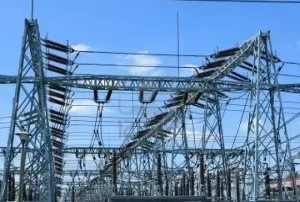Table of Contents
The Nigerian Electricity Regulatory Commission (NERC) has revealed that its recent tariff hike will impact a total of 1,974,385 electricity consumers.


This move is aimed at significantly reducing the estimated N2.9 trillion electricity subsidy in the 2024 fiscal year.

Join our Telegram Channel for Updates
The decision to increase tariffs became necessary due to cash flow constraints resulting from the Federal Government’s inability to meet obligations to the Nigeria Electricity Market.
Under the new tariff structure, Band A customers, who receive a minimum of 20 hours of electricity supply daily, will experience a 230 percent increase in their electricity tariff, rising from N68 per kilowatt-hour to N225/kWh, effective April 1.
Band A customers will no longer benefit from the Federal Government subsidy on electricity as per the new directive issued by NERC. It was revealed that subsidy payments across different bands have become unsustainable.
Despite President Bola Tinubu’s freezing of electricity tariffs at December 2022 levels since July 1, 2023, with a promise of subsidy payments, the government has failed to fulfill this commitment. This failure has led to a significant accumulation of debts to power generation companies and gas suppliers amounting to N3.5 trillion.
NERC’s Vice Chairman, Mr. Musliu Oseni, stated that the tariff increase will affect only 15 percent of the 13,162,572 electricity customers nationwide, while the remaining customers will continue to pay the old rate until their supply improves and they are migrated to Band A.
It is hoped that the additional revenue generated from the tariff increase will attract investments in the sector. However, stakeholders, economists, and industry experts have expressed concerns about the hike, predicting high utility bills, reduced consumer disposable income, increased operational costs for businesses, and potential negative impacts on low-income earners and the economy as a whole.
The Trade Union Congress of Nigeria (TUC) described the hike as unacceptable and a potential trigger for unrest, urging the government to reconsider its decision.
Similarly, experts warned that the increase could lead to reduced spending on non-essential items, decreased productivity, and potential layoffs in businesses. They emphasized the need for fundamental issues in the electricity value chain to be addressed to ensure sustainability and equity in pricing.
The Peoples Redemption Party (PRP) criticized the tariff hike, labeling it as insensitive and a disregard for the plight of citizens, especially considering the recent removal of fuel subsidies and the devaluation of the Naira, which have already increased the cost of living and hardship for the populace.









